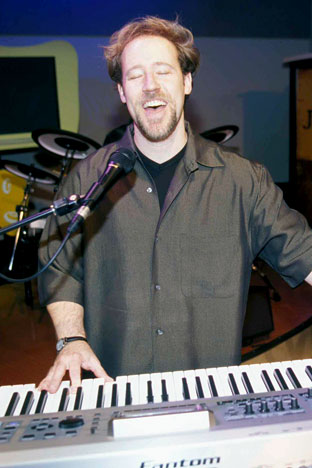Creative Solutions For Inspired Learning
Menu
Creative Solutions For Inspired Learning
MenuBy Judy Davis

After we returned from a music conference at Glorieta, New Mexico, in 1992, our church, Pleasant Valley Baptist in Amarillo, Texas, began a keyboard ministry. Our purpose was to give more people an opportunity to experience the joy of church musicianship. As keyboard minister, I began identifying those in the congregation with a piano or organ background, and those who wanted to play but needed lessons. I also located keyboardists who were not members of our church, but lived close by.
This search located a surprisingly large number of people who had once played keyboard. There were those who had excellent piano skills, but had seldom used them in church. One had a music degree and had even served as a substitute church pianist on a limited basis. Several had very usable skills, and some were taking piano lessons at the time and just waiting for someone to ask them to play. Our team is presently composed of ten musicians, ranging in age from 34 to 65. Their experience taking piano lessons ranges from four to 15 years, and other instruments they play are tenor sax, violin, and harp. Locating prospective keyboardists was the easy part. The real challenge was putting them to good use. The worship committee, composed of the pastor, the minister of music, and myself as the keyboard minister, plan the services during weekly meetings. It’s my responsibility to incorporate the keyboardists into all aspects of music-making at our church. Here are some of the opportunities:
We also want to plan a periodic service where members of the congregation who play other instruments can join in during one of the hymns.Additionally, we want to explore teaching music through our day care center.
An outgrowth activity of our keyboard ministry was a performance at the church by our team with the children from a local piano ensemble camp.Thanks to Jent’s Music, which loaned three digital pianos, the adults also performed “Amazing Grace,” a keyboard ensemble arranged by Tom Stampfli and published by Warner Bros.
The support for the keyboard ministry from Pleasant Valley’s pastor, music minister, and organist cannot be overestimated. I participate in weekly planning sessions, which address the entire service, not just the music segment. Publications useful to planning are Worship Leader, Christianity Today, and Church Musician.
The critical element of this ministry is encouragement. Not everyone can handle a full-fledged Billy Graham Crusade, but they can make a contribution. The teachings of the church stress “making a joyful noise.” Among most congregations, few believe themselves to have talent. If only the most talented birds sang, the church forest would be sadly silent if we approached only those who believe they have talent. By becoming more acquainted with our congregations, we become better keyboard ministers—and that’s the joy of our calling.